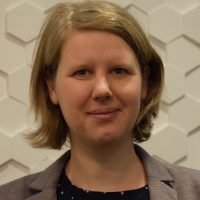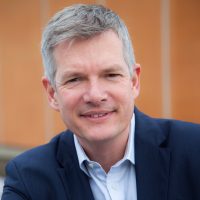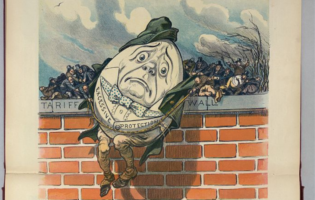Climate and Energy Policies in the United States and Germany: Lessons for the Future

Kirsten Verclas
ORISE Science and Technology Policy Fellow
Kirsten Verclas is an ORISE Science and Technology Policy Fellow. Previously, she was a Program Manager in the International Department of the National Association of Regulatory Utility Commissioners (NARUC) working on regulatory partnerships in Africa under a NARUC-U.S. Agency for International Development (USAID) Cooperative Agreement. Before coming to NARUC, Ms. Verclas was a Senior Program Manager at the American Institute for Contemporary German Studies (AICGS) at Johns Hopkins University, where she managed the Institute’s grant projects. She initially joined AICGS as Executive Assistant in 2003 and started working in the Institute’s Research Program in 2008. Ms. Verclas has written extensively on energy and climate as well as security policy in the transatlantic context. She holds a BA in International Relations with a Minor in Economics from Franklin and Marshall College and an MA in International Relations with a concentration in Security Studies from The Elliott School at The George Washington University. She also earned an MS in Energy Policy and Climate from Johns Hopkins University in August 2013.
She is a 2017-2018 participant in AICGS’ project “A German-American Dialogue of the Next Generation: Global Responsibility, Joint Engagement,” sponsored by the Transatlantik-Programm der Bundesrepublik Deutschland aus Mitteln des European Recovery Program (ERP) des Bundesministeriums für Wirtschaft und Energie (BMWi).

Tim Stuchtey
Brandenburg Institute for Society and Security; German University of Digital Science
Dr. Tim H. Stuchtey is a Geoeconomics Non-Resident Senior Fellow at AGI. He is the executive director of the Brandenburgisches Institut für Gesellschaft und Sicherheit (BIGS), a homeland security think-tank based in Potsdam, Germany. He is also Professor for Economics of Cybersecurity at the German University of Digital Science in Potsdam. He has served as Director of AGI's Business & Economics Program. He works on various issues concerning economic policy, the economy of security, the classic German ‘Ordnungspolitik,’ and the economics of higher education.
Dr. Stuchtey studied economics with a major in international trade and international management and graduated in 1995 from the Westfälische Wilhelms-Universität in Münster. In 2001 he earned a Ph.D. from the Technische Universität Berlin in economics, which he obtained for his work in public finance and higher education policy. He worked as an economist for the German Employers Association and as a university administrator both at Technische and Humboldt-Universität Berlin. He was also the managing director for the Humboldt Institution on Transatlantic Issues, a Berlin-based think tank affiliated with Humboldt-Universität.
He has published a number of articles, working papers, and books on the security industry, homeland and cybersecurity issues, higher education governance and finance and on other questions of the so-called ‘Ordnungspolitik.’
Issue Brief 29
AGI recently completed a project to address the climate and energy challenges with the generous support of the Daimler-Fonds im Stifterverband für die Deutsche Wissenschaft, resulting in this Issue Brief and the following three Policy Reports which focus on some of the many aspects of the climate and energy puzzle.
In AGI Issue Brief 29, Tim Stuchtey and Kirsten Verclas analyze the policy recommendations that come from the three Policy Reports and look at the political implications of these recommendations, focusing on emission trading, biofuels, and current climate-friendly technologies.









